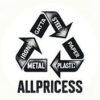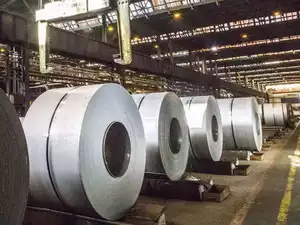### Developing Partnerships with Metal Scrap Suppliers: Tips and Strategies
Building strong, reliable partnerships with metal scrap suppliers is crucial for the success of a metal scrap import business. These relationships ensure a consistent supply of high-quality scrap, enable better pricing, and create opportunities for long-term collaboration. Here are some tips and strategies for developing and maintaining effective partnerships with metal scrap suppliers:
#### 1. **Research and Identify Potential Suppliers**
– **Industry Directories:** Utilize industry directories and trade associations to find reputable metal scrap suppliers.
– **Trade Shows and Conferences:** Attend industry trade shows and conferences to meet potential suppliers and understand their offerings.
– **Online Platforms:** Use online platforms and marketplaces that specialize in metal scrap to identify suppliers.
#### 2. **Evaluate Supplier Capabilities**
– **Quality Standards:** Assess the quality standards of the supplier’s metal scrap. Request samples and inspect them for compliance with your requirements.
– **Capacity and Reliability:** Ensure the supplier can consistently meet your volume requirements and delivery schedules.
– **Certifications:** Verify the supplier’s certifications and compliance with industry regulations and standards.
#### 3. **Build Trust and Communication**
– **Clear Communication:** Establish clear and open lines of communication with your suppliers. Regular updates and feedback are essential.
– **Transparency:** Be transparent about your needs, expectations, and any issues that arise. Encourage your suppliers to do the same.
– **Trust:** Build trust by honoring your commitments, paying on time, and being honest in your dealings.
#### 4. **Negotiate Win-Win Agreements**
– **Fair Pricing:** Negotiate fair pricing that benefits both parties. Consider long-term contracts that provide stability for both you and the supplier.
– **Flexible Terms:** Work out flexible terms that can accommodate market fluctuations and changes in demand.
– **Mutual Benefits:** Look for ways to create mutual benefits, such as joint marketing efforts or shared logistics solutions.
#### 5. **Implement Effective Logistics and Supply Chain Management**
– **Efficient Logistics:** Develop efficient logistics and transportation plans to minimize delays and costs.
– **Inventory Management:** Implement robust inventory management systems to ensure a steady supply without overstocking.
– **Technology:** Use technology to track shipments, manage orders, and communicate with suppliers in real-time.
#### 6. **Develop Long-Term Relationships**
– **Consistency:** Maintain consistent communication and engagement with your suppliers. Regular check-ins help to keep the relationship strong.
– **Support:** Provide support to your suppliers, such as sharing market insights or offering technical assistance, to help them improve their operations.
– **Loyalty:** Show loyalty by sticking with your suppliers during tough times, which can foster reciprocal loyalty.
#### 7. **Cultural Understanding and Respect**
– **Cultural Awareness:** Understand and respect the cultural practices and business etiquette of your suppliers, especially if they are located in different countries.
– **Local Customs:** Be aware of local customs and holidays that may affect production and delivery schedules.
#### 8. **Monitor and Review Performance**
– **Regular Audits:** Conduct regular audits of your suppliers to ensure they continue to meet your quality and compliance standards.
– **Feedback Loop:** Create a feedback loop where both you and the supplier can discuss performance and areas for improvement.
– **Performance Metrics:** Use performance metrics to objectively assess the supplier’s reliability, quality, and delivery times.
#### 9. **Conflict Resolution**
– **Proactive Approach:** Address conflicts and issues promptly and proactively. Avoid letting small issues escalate into major problems.
– **Mediation:** Use mediation or third-party arbitration if necessary to resolve disputes amicably.
#### 10. **Stay Informed About Market Changes**
– **Market Trends:** Stay informed about market trends and changes that could affect your supply chain and supplier relationships.
– **Regulatory Changes:** Keep up with any regulatory changes that could impact the sourcing, importation, and quality standards of metal scrap.
### Conclusion
Developing strong partnerships with metal scrap suppliers is a strategic process that requires diligence, communication, and mutual respect. By following these tips and strategies, you can build and maintain relationships that enhance the efficiency and profitability of your metal scrap import business.

